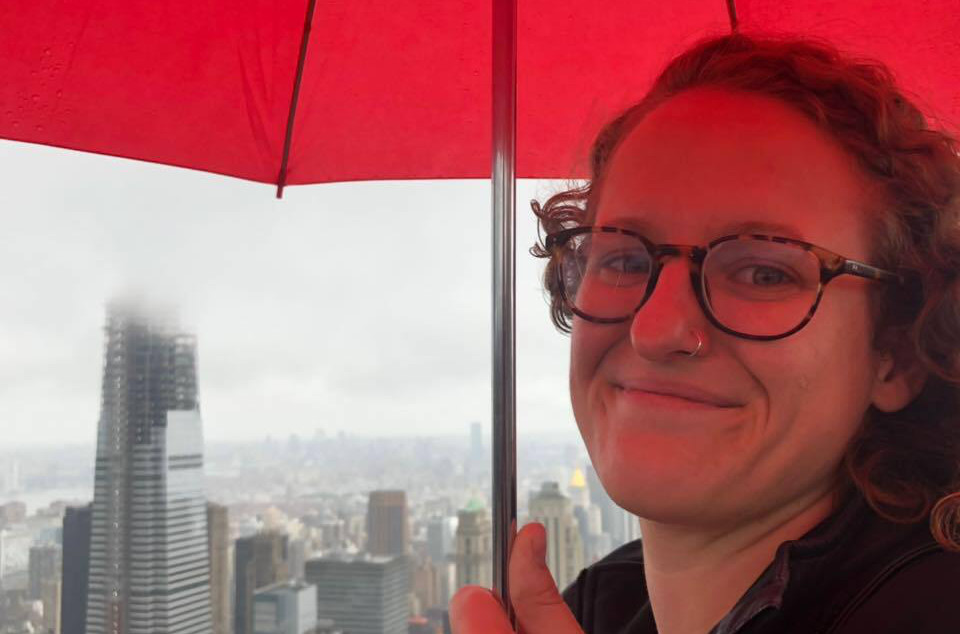
Ambassador Connections: Meet Amanda Escheman
This is the first in an occasional series featuring our NewsLit Nation ambassadors.
Amanda Escheman, Denver
1. As a NewsLit Nation ambassador, you clearly are committed to news literacy education. What drives that commitment?
As an elder millennial, I had access to the internet growing up, and social media became popular during my high school years. I was a captain on our high school speech and debate team and was never afraid to bring up tough topics around the dining room table. I was appalled by the echo chamber I found myself in and appreciated the critical lens I was forming as a competitor in forensics. I engaged in critical thinking with fidelity and was inspired to pursue my bachelor’s in philosophy. It was in college that I developed literacy in critical processing, and I fell in love with education.
Now, as a social studies teacher, I am committed to helping others navigate and interrogate digital content in its many forms and break out of their own echo chambers. Often, digital consumers seem content with sharing unvetted information that reaffirms their biases, and media outlets exploit this vulnerability. The impact on the democratic process is striking; misinformation begets misinformed voters. I can see no greater threat to democracy than a misinformed electorate. This is truly an “us vs. the machine” challenge. Freedom of press grants news organizations the responsibility of guiding the public to make informed decisions. However, the digital renaissance has transformed the information machine into a tool for the attention economy. The value of profit seems to outweigh the value of an informed electorate. Within the classroom, I have the opportunity to do my part in helping students become thoughtful consumers of online content, and moreover, considerate participants in democracy. Critical literacies must evolve to address the changing landscape of news and other digital media.
2. What is your favorite tool or tip for teaching news literacy that you can share with the community?
I am a huge “X-Files” nerd and have always loved the absurdity of conspiracies and the suspension of logic in the sci-fi genre. To share my joy in the absurd, I would instruct a lesson on the Roswell Investigation. Students analyzed primary and secondary sources to form an opinion and explain their reasoning. This was always great fun.
However, in online spaces it becomes more and more difficult to separate fact from fiction. Information can be more easily manipulated, and most people lack the digital literacy skills needed to analyze and evaluate media. I have assigned various lessons through Checkology® to drill down on topics like search engines and algorithms as a way to bring awareness to the way online tools can shape and limit our experiences. The first step in teaching news literacy is to realize that we are fish in a digital data stream and must become aware of the water around us.
3. These are particularly challenging times for being an educator. What has been your go-to de stressor?
I am a history teacher, so I binge period shows like “Outlander.” I am also a collector of historical artifacts including old and rare books, the Civil War/Revolutionary War relics, antiques, and other items I can leverage to inspire my learners to engage. I recently started collecting antique, shellac 78’s and restored a gramophone from 1920. Now I am obsessed with genealogy and have fallen into the rabbit hole of ancestry research.
4. How do you promote news literacy outside of the classroom?
This spring I co-hosted a series of webinars with The Colorado Sun to discuss the foundations of news literacy, teaching controversial issues in the classroom and teaching news literacy during the midterms. Our goal was to inform other educators how to navigate news literacy in education. It is my hope to help integrate news literacy instructional methods into more professional development circles.
5. Aside from fighting for facts, what else are you passionate about?
I am passionate about student civic engagement in local politics. Across the political spectrum, students need to engage with local party leaders and feel invested in their communities. For example, in Colorado, party members under the age of 18 can caucus! Within the Democratic caucus someone who is 16 years old can even vote! This is one way that students can make a political mark and elect local, state and national leadership in a big way.
